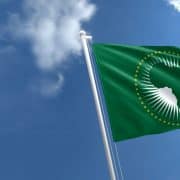|
Getting your Trinity Audio player ready...
|
by Khayalethu Hamana
Over the past 50 years, Africa is estimated to have lost more than $1-trillion in illicit financial flows, but this may well fall short of reality, because accurate data does not exist for many countries.
The estimates often exclude illicit flows, such as the proceeds of bribery and the trafficking of drugs, people and firearms. The amount lost annually is, therefore, likely to exceed $1-trillion by a significant amount.
Former South African president Thabo Mbeki, who heads the African Union’s high-level panel on illicit financial flows from Africa, has said: “Africa faces the great challenge of large volumes of capital leaving the continent illicitly – money that our continent needs to address the challenges of development.
“We, as Africans, have an absolute obligation to act on this to ensure that the rest of the world (the destination of these illicit movements of funds), by acting together, will help stop this drain of resources which belong to the continent that needs them so badly.”
Sustained pressure needs to be put on corrupt leaders through asset-recovery campaigns that result in money being reclaimed and justice being done. Leaders need to be made aware they will be made accountable – even if only in the future.
Some African leaders have begun to focus on the repatriation of looted assets as an element of their anti-corruption efforts. South Africa would do well to investigate the full extent of the looting of public resources. In 2011, the Special Investigating Unit told Parliament that the procurement budget bled between R25bn and R30bn each year due to fraud.
Billions stashed away overseas
In a leak that exposed the secretive world of Swiss banking, details about hundreds of South Africans who have stashed more than $2bn in accounts at HSBC emerged last year. The leak exposed secret bank accounts in which crooks, tax dodgers, arms dealers, shady diamond dealers, politicians and celebrities stash their cash.
There were 585 South Africans who held $2.09bn in 2 221 Swiss accounts. Fana Hlongwane, who had been special adviser to the late defence minister Joe Modise – accused of being the bagman for bribes paid in the arms deal – held several accounts.
The loss of resources through illicit financial flows can only deepen African countries’ reliance on foreign donors. Despite assertions of domestic ownership, development policy often reflects the perspectives of creditors or donors.
The illicit financial flows in Africa point to a governance problem – weak institutions and inadequate regulatory environments. The people and corporations behind illicit flows often compromise state officials and institutions. Left unchecked, these activities lead to entrenched impunity and the institutionalisation of corruption.
Corruption at all levels
Concern about corruption and the looting of public resources are fiercest in Nigeria and South Africa, the continent’s biggest economies. Nigeria has lost $89.5bn and SA $24.9bn between 1970 and 2008 through criminal trade and money laundering.
The losses have been biggest in the natural resources sector, including gold and diamond mining in South Africa, and oil and gas in Nigeria. Some of the losses in South Africa date back to the shell companies set up by mining houses to evade anti-apartheid sanctions.
Examples of the corruption fuelling illicit financial flows came up at every stage of the panel’s work, from bribes paid to customs officers and inducements to tax inspectors, including job offers; to payments to security officers, bankers and judges.
Political power is often used to prevent state officials from carrying out their duties. This includes forbidding officials to vet mineral exports or search private planes to prevent smuggling of cash, and politicians cutting deals to frustrate the prosecution of crimes relating to illicit flows.
These flows contribute to political discontent, partly due to the reduced ability of governments to provide social services, but also as a result of the resentment of corruption. These factors were evident during the Afro-Arab Spring. Participants in the panel’s consultations in North Africa were particularly vocal in expressing their anger at the extent of their resources illicitly taken abroad and the cumbersome, lengthy and costly process of repatriating such funds.
Corrupt individuals should be exposed, prosecuted and, if found guilty, jailed. Illicitly acquired assets should be confiscated as a deterrent. The fight against corruption can be won only through evidence of leadership by example, and not leadership by message.
Government activities must be transparent as the keys to managing corruption effectively are honesty, integrity, effective leadership and governance, transparency, and accountability.
South Africa has a role to play
South Africa’s crucial roles in developmental initiatives in Africa, such as the African Union, the New Partnership for Africa’s Development and the African Peer Review Mechanism, have positioned it to play a pivotal role in joint efforts aimed at the economic development of Africa.
The mechanism does not provide for monitoring the processes and effects of illicit financial flows. This should be fixed, as the mechanism is a good instrument.
South Africa should work with its neighbours, the rest of Africa and the UN, to advance and implement economic and governance measures to curtail illicit financial flows and to impress upon the Group of 20 the need to correct its failures in oversight and regulation that have facilitated the absorption of illicit financial flows, and contributed to the current economic crisis.
Mbeki maintains that governments in Africa lose big amounts of revenue owed to the state due to the unlawful outflow of significant capital that Africa needs for development. He says to combat this, interventions are needed from institutions such as tax authorities, customs, central banks, financial intelligence units for combating money laundering, audit and anti-corruption authorities and the police.
Mbeki sees a need for legislation to give these institutions the mandate they need to co-operate in the fight against illicit capital outflows that move across shared borders.
Advocacy is an essential part of the fight against corruption. There is a need to raise awareness among government officials, citizens, national and international development partners of the scale and effect of such financial outflows on development.
The experiences of Kenya and Nigeria demonstrate the difficulties likely to be faced by countries launching on such campaigns, but hobbled by a lack of technical and legal expertise. Both countries had to outsource aspects of their investigations to skilled and costly foreign personnel.
Nigeria achieved a “qualified success”, recovering a significant amount of money, but had to make unsatisfactory compromises with offenders. Kenya seemed to be on a productive path before an apparent implosion of political will left its asset-recovery campaign floundering. It is believed to have lost as much as $1.51bn between 2002 and 2011 to trade misinvoicing.
A recent study funded by the Danish government shows Kenya’s tax loss from misinvoicing by multinationals and others could be as high as 8.3% of state revenue.
Recovery attempts are complex because those implicated in public looting are usually those with the most power. In Nigeria, former president Olusegun Obasanjo’s national security adviser became forensic auditor and travelled the globe, following the trail left by his predecessor Sani Abacha’s money. Abacha had bank accounts in Luxembourg, Liechtenstein, Jersey, the US and more than 140 accounts in Switzerland.
While relatively few funds were found in Britain, the electronic footprints of more than $1.3bn were unearthed there. A Swiss committee found much of Abacha’s money in Swiss accounts had been laundered through Britain, and a third through the US.
There is a tendency to link grand corruption and public theft with post-colonial African regimes, yet the looting of assets and stashing of the proceeds in northern financial institutions is entrenched. While it is true colonial governments were guilty, Africa needs to take responsibility for what has happened since the colonisers left.
• Hamana is a doctoral student and visiting lecturer in educational change and management at Masaryk University, Czech Republic
• Image courtesy of TaxRebate.org.uk
• Article first published in Business Day








